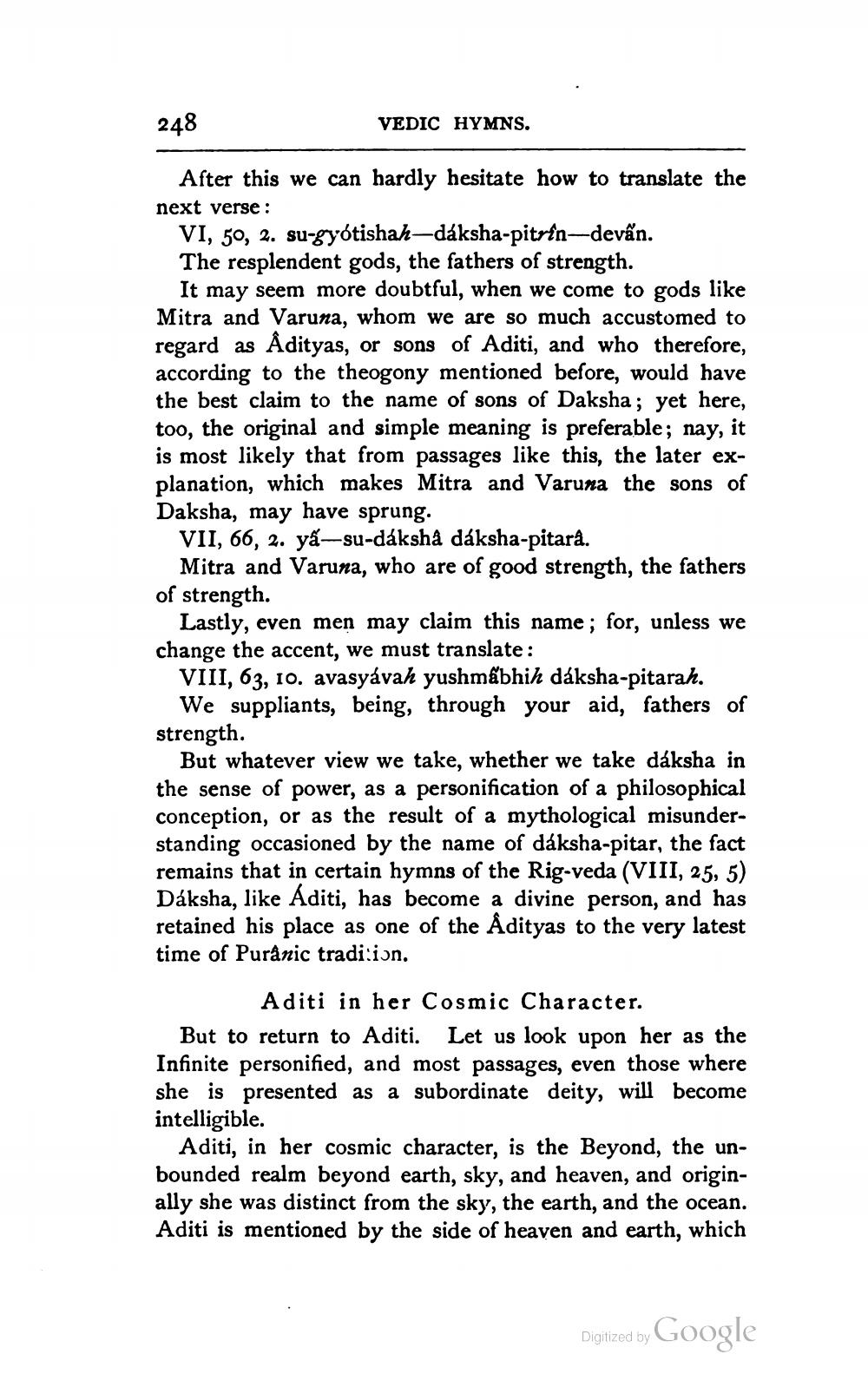________________
248
VEDIC HYMNS.
After this we can hardly hesitate how to translate the next verse:
VI, 50, 2. su-gyótishah-dáksha-pitrin-devấn. The resplendent gods, the fathers of strength.
It may seem more doubtful, when we come to gods like Mitra and Varuna, whom we are so much accustomed to regard as Adityas, or sons of Aditi, and who therefore, according to the theogony mentioned before, would have the best claim to the name of sons of Daksha; yet here, too, the original and simple meaning is preferable; nay, it is most likely that from passages like this, the later explanation, which makes Mitra and Varuna the sons of Daksha, may have sprung.
VII, 66, 2. ya-su-dákshå dáksha-pitara.
Mitra and Varuna, who are of good strength, the fathers of strength.
Lastly, even men may claim this name ; for, unless we change the accent, we must translate:
VIII, 63, 10. avasyavah yushmabhih dáksha-pitarah. We suppliants, being, through your aid, fathers of strength.
But whatever view we take, whether we take dáksha in the sense of power, as a personification of a philosophical conception, or as the result of a mythological misunderstanding occasioned by the name of dáksha-pitar, the fact remains that in certain hymns of the Rig-veda (VIII, 25, 5) Dáksha, like Aditi, has become a divine person, and has retained his place as one of the Ådityas to the very latest time of Puranic tradision.
Aditi in her Cosmic Character. But to return to Aditi. Let us look upon her as the Infinite personified, and most passages, even those where she is presented as a subordinate deity, will become intelligible.
Aditi, in her cosmic character, is the Beyond, the unbounded realm beyond earth, sky, and heaven, and originally she was distinct from the sky, the earth, and the ocean. Aditi is mentioned by the side of heaven and earth, which
Digitized by
Digized by Google




